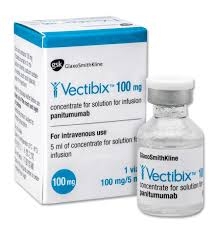Prof. Michael Sela
Still hard at work, pursuing the understanding of immunology
People behind the science

The illustrious career of immunologist Prof. Michael Sela has resulted in a widely prescribed drug for multiple sclerosis and several cancer drugs. But he is most proud, he says, of his part in research that did not directly cure disease or result in patents.
These were experiments that uncovered the genetic control of the immune response - a finding that would lead to the development of whole new fields of immunology research.
Prof. Sela originally thought he would be a chemist. He arrived in Israel at age 17, after his family had first fled Poland and then Romania. In 1941, shortly after his arrival, he enrolled in the chemistry program at The Hebrew University of Jerusalem. “I was at home with Polish, German, Romanian and French, but not yet with Hebrew and English,” he says. He began learning Hebrew the minute he arrived in Israel; he taught himself English by reading with the aid of a dictionary.
After completing his MSc in Jerusalem, he went to Geneva to conduct PhD studies, but several months later he moved to Italy where he helped whisk European Jews—mostly Holocaust survivors—to Israel. After Israel’s independence was declared, he became a commercial secretary in the Israeli legation in Czechoslovakia. His immediate family had escaped to Israel, but many other relatives had perished at the hands of the Nazis.
But as a young man, he still had his heart set on science. Returning to Israel in 1950, he joined the newly formed Weizmann Institute of Science and became a student of the renowned biophysicist Prof. Ephraim Katzir. Prof. Katzir worked with poly-amino acids—synthetic models that facilitate the study of proteins. Katzir would later serve as President of the State of Israel, and then return to his lab in the Weizmann Institute.
Prof. Katzir was interested in synthesizing poly-amino acids because they had interesting properties and promised chemical applications, but Prof. Sela—who attained a faculty position at the Weizmann Institute after a postdoc stint at the National Institutes of Health in the U.S.—thought that the same molecules might have biological properties. Specifically, he intuited that such molecules could serve as antigens—molecules that would provoke a unique immune response in the body.
Serendipity and perseverance
With the goal of better understanding the processes at work in multiple sclerosis (MS), Prof. Sela, Dr. Dvora Teitelbaum, and Prof. Ruth Arnon—Prof. Sela's first PhD student— developed synthetic molecules, and injected them into mice in the hope of inducing the symptoms of MS, an autoimmune disease in which the immune system mistakenly attacks the myelin sheath surrounding the nerve extensions. But the molecules did not work as planned: “We tried to induce the disease using these co-polymers for over a year without success. It later turned out, to our complete surprise, that instead of inducing the disease, the peptides were curing it,” he says.
It would take that team another 28 years to get the drug based on this discovery—Copaxone®—to the final stages of FDA approval. Copaxone® was the first drug based on a completely synthetic antigen, and it was Israel’s first ethical drug. Along the way, Prof. Sela and others have researched its mode of action, finding that the drug not only slows the destruction of the protective myelin sheath, it can in some cases restore the sheath. Originally licensed to the Israeli pharmaceutical company Teva, Copaxone® is now approved for use in 51 countries.
For Prof. Sela, the findings were proof that synthetic antigens could have significant biological functions. That may seem obvious in hindsight, from our vantage point of designer drugs and computer-designed proteins, but an early paper the group wrote on synthetic antigens was rejected by Nature. (It was later published elsewhere and has been named a “Citations Classic.”)
Synthetic antigens would enable Prof. Sela, together with John Humphrey of England’s National Institute for Medical Research and Hugh McDevitt of Stanford University, to discover the genetic control of the immune response when they observed that the same molecules would produce immune reactions in some strains of lab animals, but not in others. “Of all the contributions of synthetic polypeptides toward our present-day understanding of immunology, none has been more important than the discovery and the definition of the genetic control of the immune response, which in turn, was a crucial trigger toward a better understanding of the cellular basis of immunological responsiveness,” he says. Indeed, synthetic polypeptides have since become a mainstay of this area of research.
Cancer research and beyond
Prof. Sela also turned to cancer research, with the idea of creating small molecules that would block the receptors on cancer cells. This included around 20 years of collaboration with the Prof. Yosef Yarden of the Department of Biological Regulation. Work in his lab group in the 1980s on blocking the cells’ growth receptors has led to the development of three anti-cancer drugs to date.
For patients suffering from lung cancer, this year brought good news with the approval by the FDA of a new drug, Portrazza® (Necitumumab). The therapy, administered in combination with two forms of traditional chemotherapy, is used for patients with advanced (metastatic) squamous non-small cell lung cancer. This subtype comprises the major proportion—some 85 percent—of the 220,000 new lung cancer cases diagnosed each year in the U.S. alone, and it is the most common form of lung cancer in non-smokers. Until now, this type of cancer has been very difficult to treat, with few treatment options.
Portrazza® is the third cancer drug to be developed on the basis of a single patent that emerged from Prof. Sela’s research. The first one was Erbitux®, manufactured by Merck and Eli Lilly, which was approved in 2009 by the FDA for the treatment of head and neck carcinomas and metastatic colorectal cancer. The second was Vectibix®, manufactured by Amgen, for the treatment of metastatic colorectal cancer.
All three of these drugs are antibodies that block a receptor on the surface of cancer cells, called the epidermal growth factor receptor, EGFR. When certain cancer cells have too much EGFR, they grow faster; thus the receptor plays a role in the formation and spread of cancerous tumors. Used in combination with chemotherapy or radiation, blocking EGFR may prevent cancer from growing. Prof. Sela and two colleagues, Dr. Esther Aboud- Pirak and Dr. Esther Hurwitz, published their observations about EGFR in 1988.
Much of Prof. Sela’s later cancer research involved small molecules called aptamers that can be designed to target very specific proteins. He is confident that his research in this field will continue to produce results in the future: “Even if I will not see it in my lifetime, I think that aptamers will become very efficient disease-fighting molecules,” he says.
Prof. Sela founded the Weizmann Institute’s Chemical Immunology Section (later the Department of Chemical Immunology) in 1963, and served as its head until 1975. He served two terms as Weizmann Institute of Science President, from 1975-1985. His many honors and awards include the Wolf Prize, the Israel Prize, the UNESCO Albert Einstein Gold Medal, and the Adolf von Harnack Medal of the Max-Planck-Gesellshcaft. He is a Commander of the French Legion of Honor, a member of the Pontifical Academy of Sciences, the National Academy of Sciences, and the American Academy of Arts and Sciences; and a founder of the European Molecular Biology Organization (EMBO). Among the numerous awards Prof. Sela has received, the one that stands out in his mind is the Interbrew-Baillet Latour Health Prize, which was conferred on him by the Queen of Belgium.
Prof. Sela set up the Yeda-Sela Fund, which supports basic research projects that may not otherwise win funding from traditional funding agencies.To those who would follow in his path, he likes to say: “Pursue your chosen field with great passion, and with a bit of luck, great discoveries will follow."
Prof. Michael Sela is funded by The Estate of Flora Frank. Prof. Sela is the incumbent of the W. Garfield Weston Professorial Chair of Immunology.










